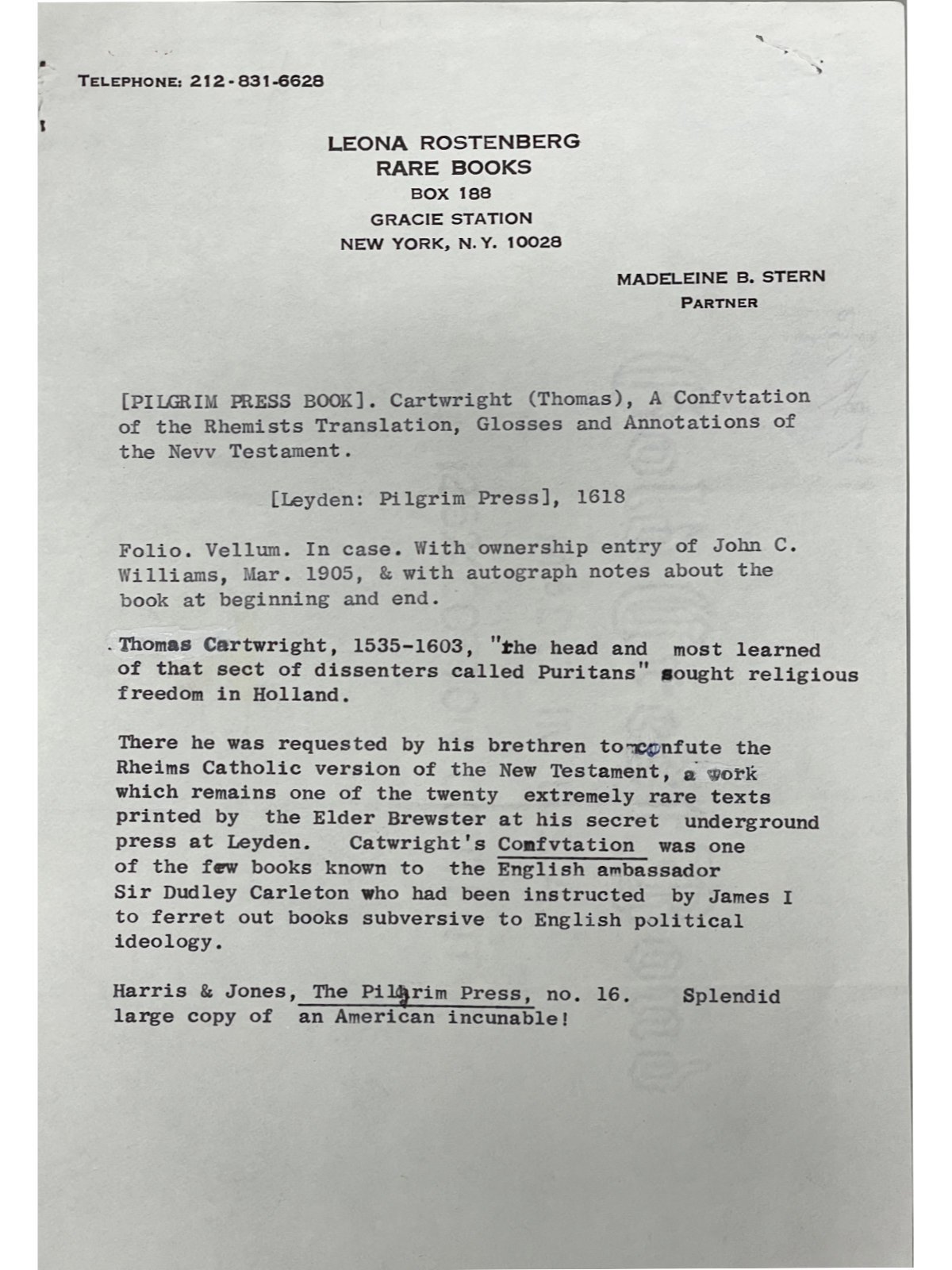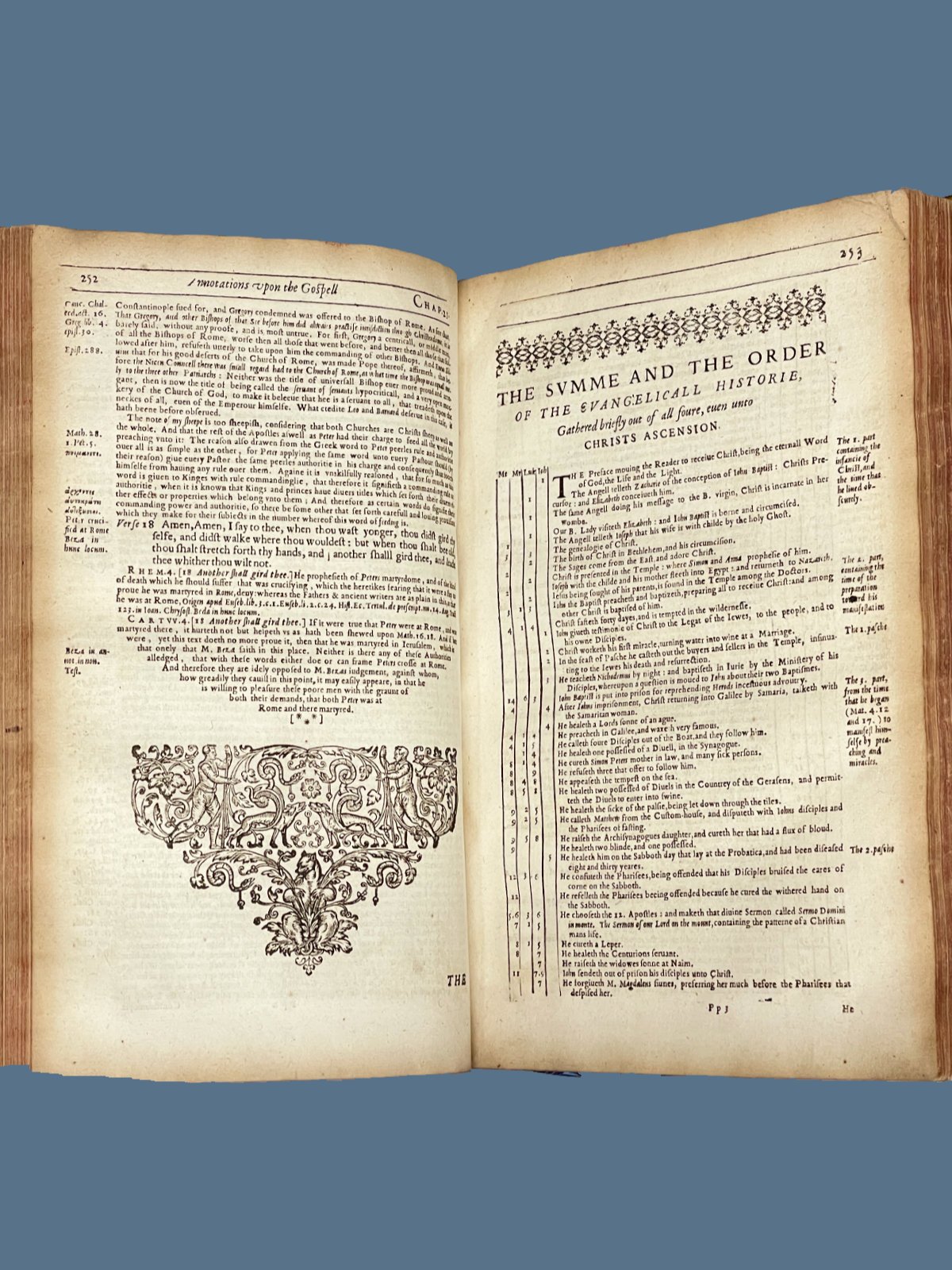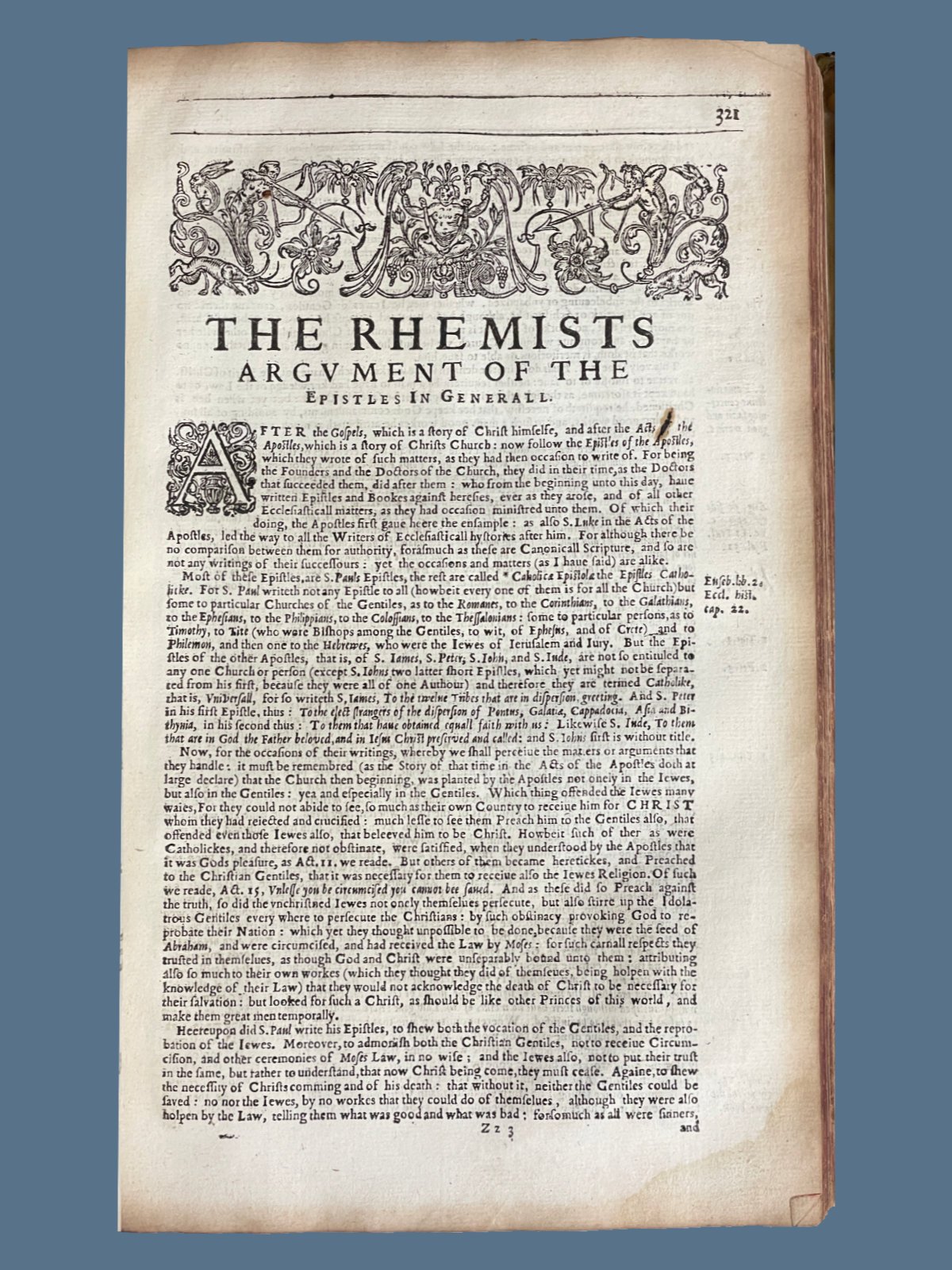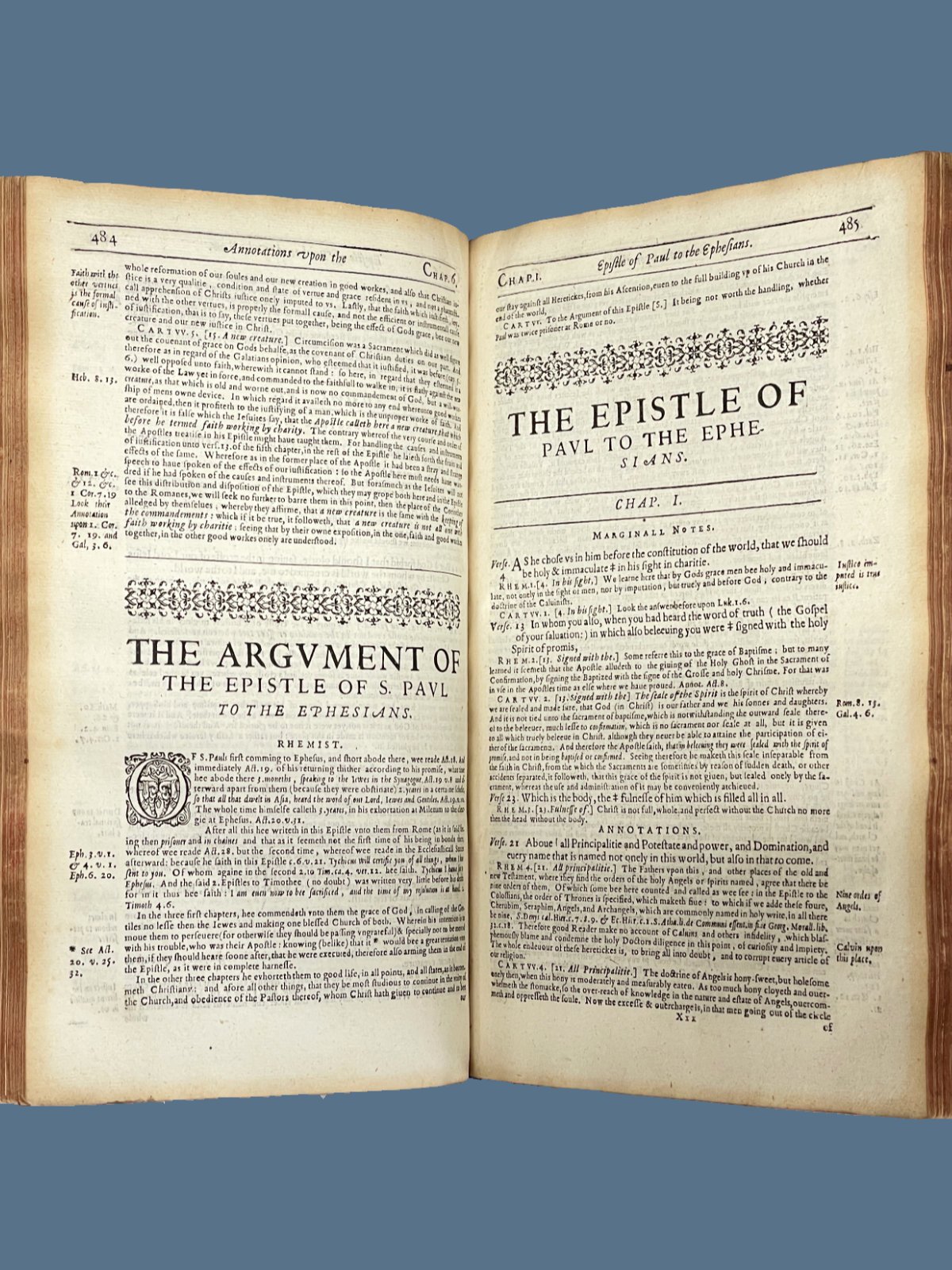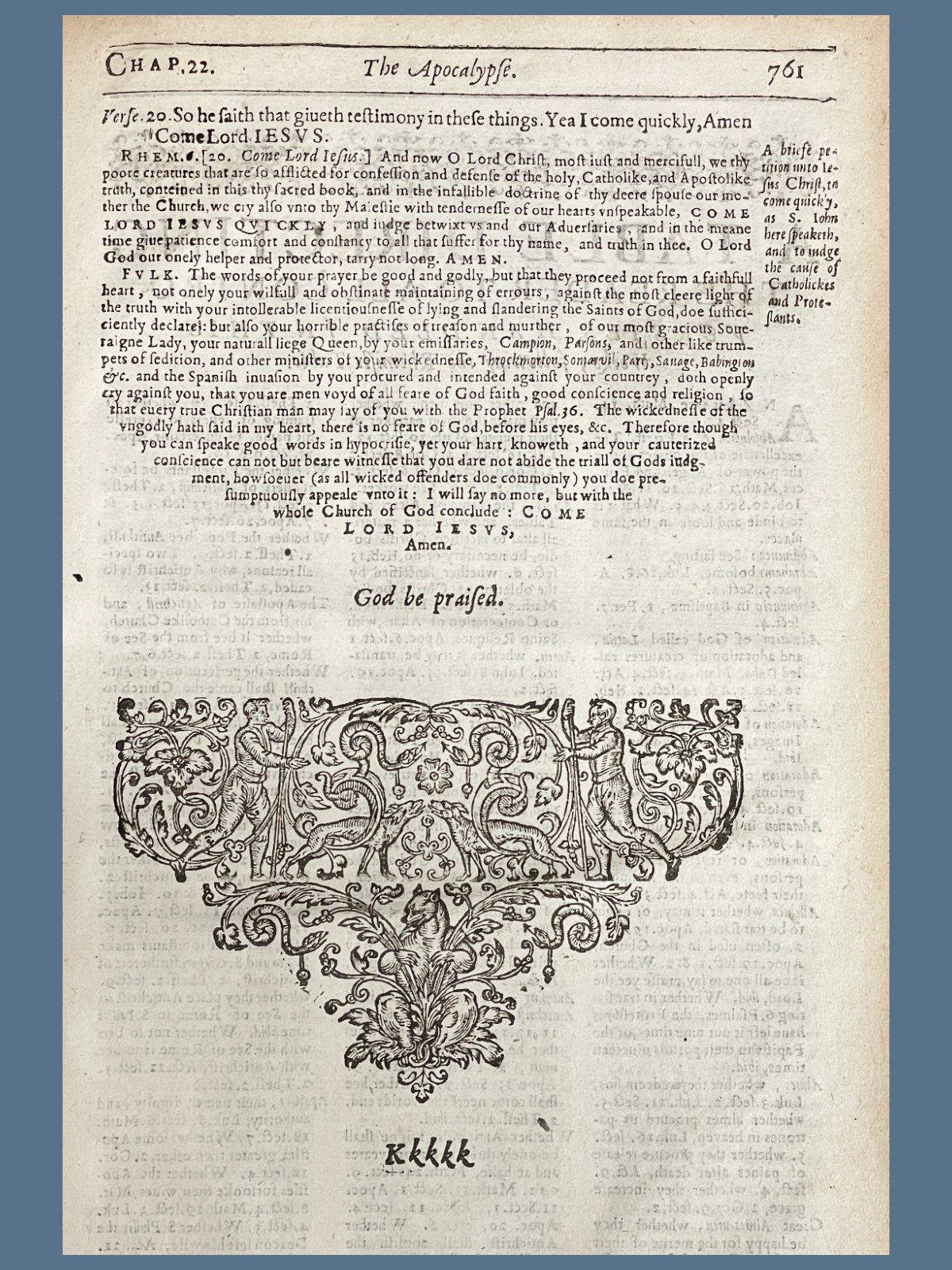1618 Folio Cartwright’s Confutation – American Incunable Pilgrim Press
Key Features
First Edition Bound in Vellum
Size: Folio (11.5” x 7.5” x 2.5”)
Author: Thomas Cartwright
Font: Single Column Roman
Binding: Contemporary Parchment
Printer: [William Brewster], [Leiden]
SKU: Q25
A Confutation of the Rhemists Translation, Glosses, and Annotations on the New Testament, so farre as they containe manifest impieties, heresies, idolatries, superstitions, prophanesse, treasons, slanders, absurdities, falsehoods, and other evills…
Summary
The work of the great Puritan Thomas Cartwright (1535-1603) posthumously published at the underground Pilgrim Press by William Brewster in Leiden who would later board the Mayflower to America.
Description
Two blank leaves with a note pertaining to Brewster’s Pilgrim Press and another to Cartwright’s impact on Puritanism. Previously sold by Rostenberg & Stern, with their original description inserted. Printed title page (1618) with a woodcut printer’s device featuring a bear. Thirty-nine preliminary leaves. Text in single column Roman font. The full text of the Rheims translation is given only through the book of Matthew. Thereafter only the verses pertaining to the controversial notes are quoted. Concludes with a Table (9 ff.) and includes the Errata (1 p.). Head- and tailpieces, woodcut initials to the start of each book.
Collation
A-F^4, S^4, G-Z^4, Aa-Zz^4, Aaa-Zzz^4, Aaaa-Zzzz^4, Aaaaa-Iiiii^4, Kkkkk-Ooooo^2. Complete.
Binding
Contemporary parchment over boards. Spine with a gilt-ruled black morocco label and the words “Cartwright’s Confutation Of The Rhemists Translation” lettered in gilt. Later endpapers. Housed in a buckram slipcase with morocco edge trim. All edges red.
Condition
Text is clean and bright overall; Scarce spotting in places; Ssss-Vvvv, Ooooo small stain to lower corner not impacting text; joints cracked but holding with hinges reinforced; a very attractive copy.
Note
The author and printer of this work shared an unwavering passion for church reform. Cartwright, a gifted preacher and advocate of Presbyterianism, spent one third of his life in prison or in exile. He was “the head and most learned of that sect of dissenters then called Puritans” (John Strype). Brewster attended Cambridge and followed a group of separatists to Holland thereafter. With the help of Thomas Brewer, he set up a secret press. From 1617 through 1619 he issued twenty books of the Separatists with this particular title known to the English ambassador Sir Dudley Carleton who had been instructed by James I to search out books subversive to English political ideology. A greater ambition lay ahead and in 1620 Brewster joined the pilgrims on a voyage to the promised land, America. Brewster’s works are truly American incunabula as “legend persists that ‘the great iron screw’ brought by the passengers from Leiden – used to support the main beam of the Mayflower during a violent storm – had been the original screw of the Brewster press.”
References
Herbert 364; ESTC S107186; USTC 3008255; Leona Rostenberg, The Minority Press and the English Crown: A Study in Repression, 1558-1625, pp. 195-198; Joel Beeke, Meet the Puritans, pp. 128-132.




